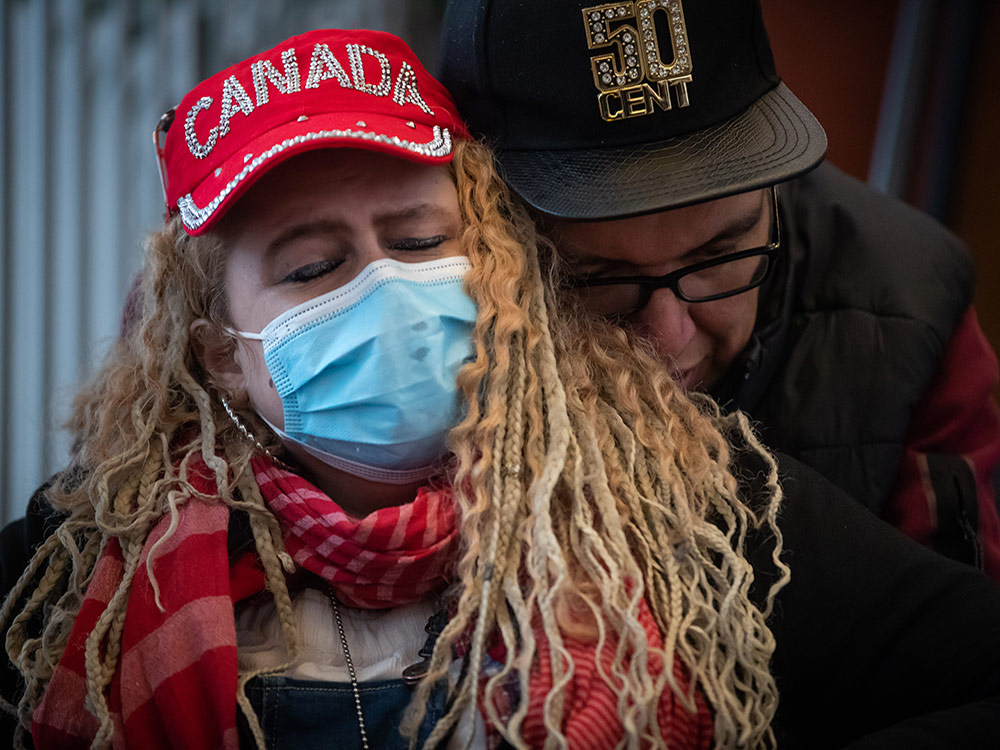British Columbia must do whatever it takes to expand safe supply programs to prevent toxic drug deaths, B.C.’s Chief Coroner Lisa Lapointe said today, as her office confirmed that 2,224 people died in 2021.
Lapointe said the province’s efforts to provide prescribed safe supply to keep people from depending on the toxic drug supply are inadequate when seven lives are lost in B.C. each day. Nearly 10,000 people have died in the last decade.
“2021 was the sixth year of the public health emergency, and it is with tremendous sadness that I report our province is in a worse place than it has ever been in regards to this crisis,” she said today.
The illicit supply is completely profit-driven, Lapointe said, and is increasingly contaminated with fentanyl, carfentanil and benzodiazepines, which were found in half of people who died in December.
Benzodiazepines make it more difficult to reverse an overdose because they don’t respond to naloxone like opioids.
Meanwhile, there are few spaces where people can be supervised while they inhale their drugs, as did more than half of people who died in 2021, and no meaningful access to a regulated supply.
“We don’t have time to be cautious,” said Lapointe in an interview. “We don’t have to wonder what will happen when we do nothing, we know. We are losing 200 people a month.”
There are currently four federally funded pilot programs for safe supply in the Lower Mainland and Victoria, each serving a few hundred patients at most. A small number of individual doctors are prescribing it.
The efforts reach a tiny portion of people who could benefit from a regulated supply of drugs.
In the last two years, 12,000 people have been prescribed safe supply in total, according to the Ministry of Mental Health and Addictions. It is conservatively estimated by the BC Centre for Disease Control that there are at least 90,000 regular opioid users in the province, and many more who use methamphetamine and benzodiazepines.
The programs’ failure is partially due to pressure from the College of Physicians and Surgeons, Lapointe said, which takes a very cautious approach to its members prescribing substances that are usually criminalized.
She said more needs to be done to explore safe supply based on non-medical, compassion club models, and to scale up the projects that have proven effective in B.C. already.
The Drug User Liberation Front advocacy group has applied for federal approval to run a compassion club for cocaine, heroin and other substances, which it has also distributed this year at a number of demonstrations.
“What we’ve tried hasn’t worked, so let’s be brave and bold enough to try something different,” Lapointe said.
Mental Health and Addictions Minister Sheila Malcolmson said today the deaths were “tragic” and “unacceptable.”
She touted B.C.’s application to the federal government to decriminalize personal possession of some drugs, expansion of safe supply and prescribed medication-assisted treatment options and spending on treatment and recovery spaces.
Malcolmson defended her government’s response to the crisis.
“The loss of life tells us that we need to do more,” she said in a media availability, acknowledging that the college’s actions have had a “chilling effect” on doctors prescribing safe supply.
But what more, if anything, the province will do remains unclear.
Asked by a reporter why B.C. had not seen an emergency response commensurate with the loss of life, Malcolmson defended the province’s slow expansion of prescribed safe supply and said it was building a system of care at the same time as it tried to respond to the crisis.
“We are making up lost ground,” she said, echoing her response to the question in a December Tyee interview.
DULF, the BC Association of People on Methadone and the Vancouver Area Network of Drug Users all called on Malcolmson and Health Minister Adrian Dix to resign in a news release today.
Lapointe, whose role it is to make recommendations to prevent future deaths, not place blame, said she shares the frustration with how slowly governments have responded for the last six years of the public health emergency.
“For me, it’s very personal. This is about human beings who are dying every day.” ![]()
Read more: Health, Rights + Justice, BC Politics

















Tyee Commenting Guidelines
Comments that violate guidelines risk being deleted, and violations may result in a temporary or permanent user ban. Maintain the spirit of good conversation to stay in the discussion.
*Please note The Tyee is not a forum for spreading misinformation about COVID-19, denying its existence or minimizing its risk to public health.
Do:
Do not: